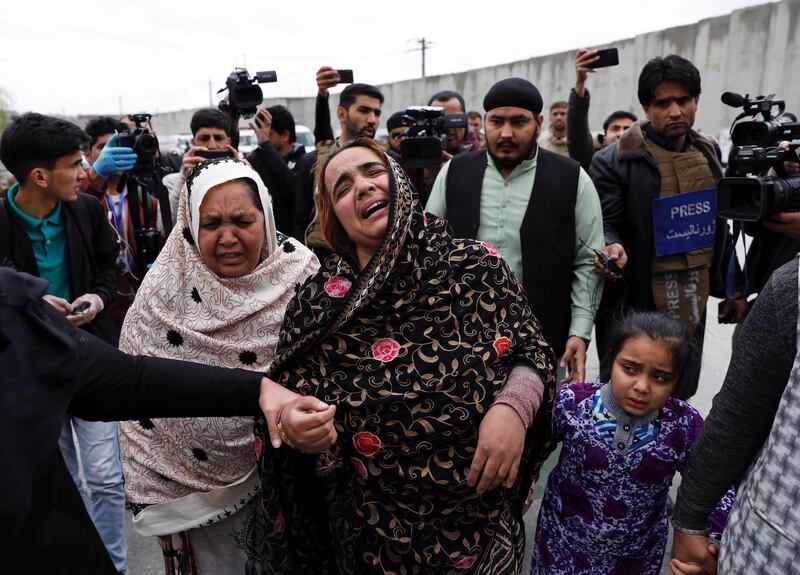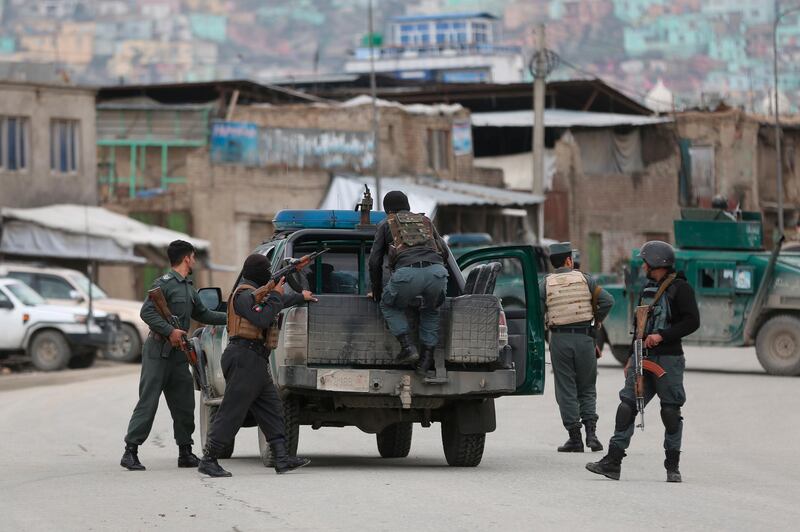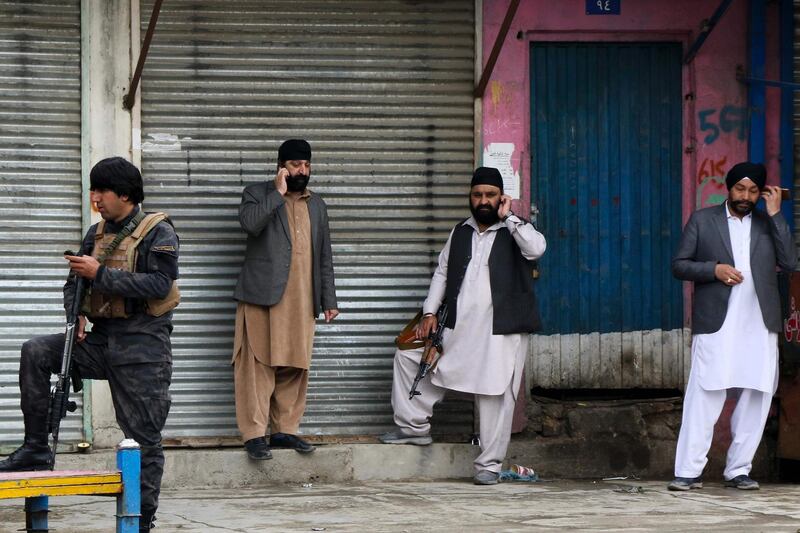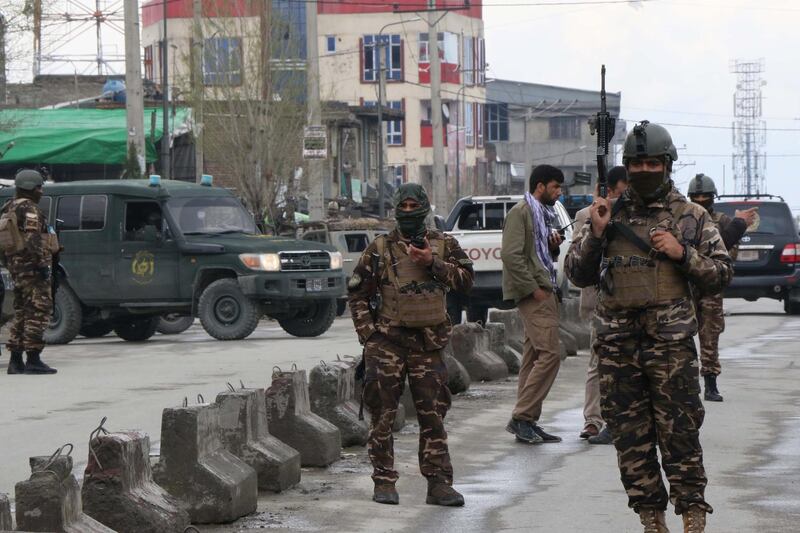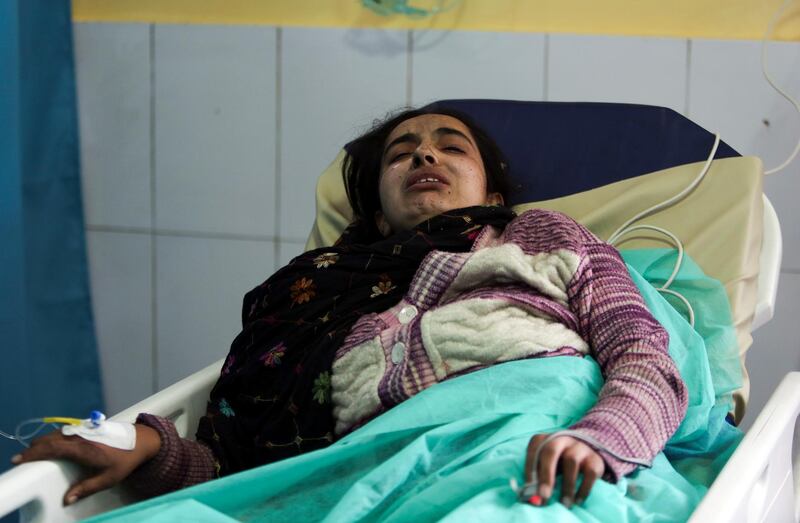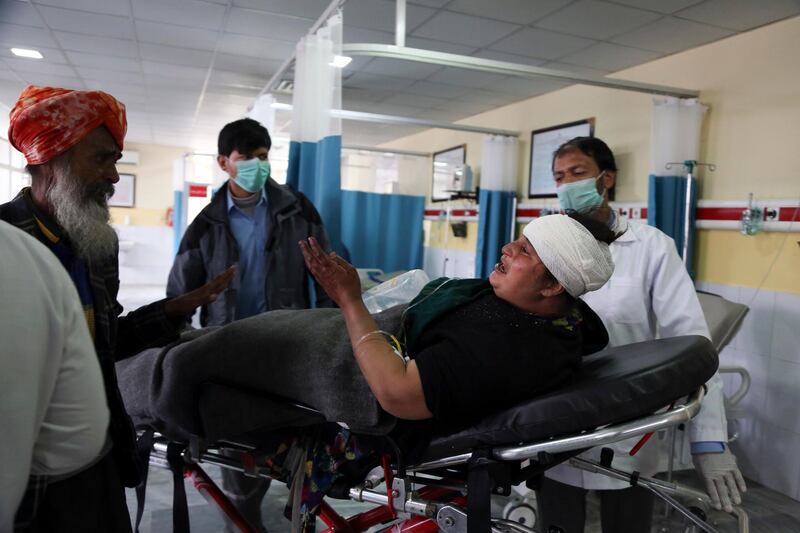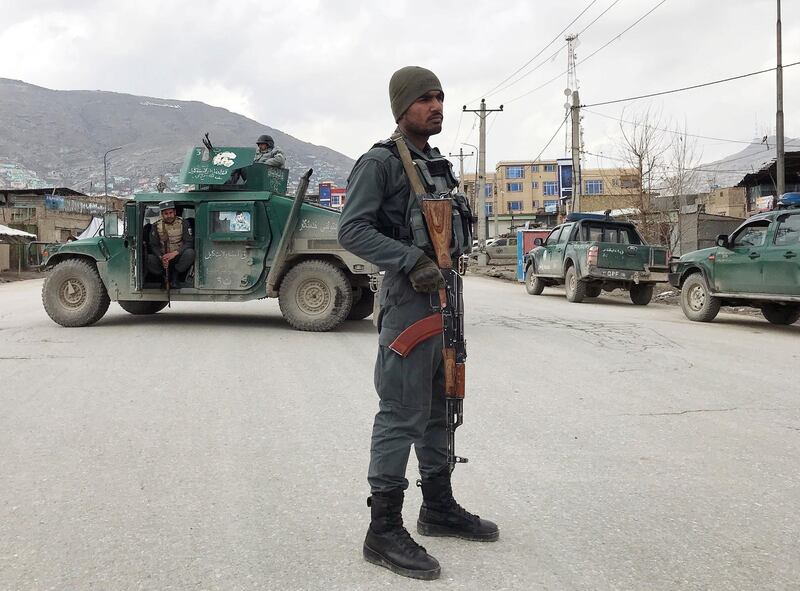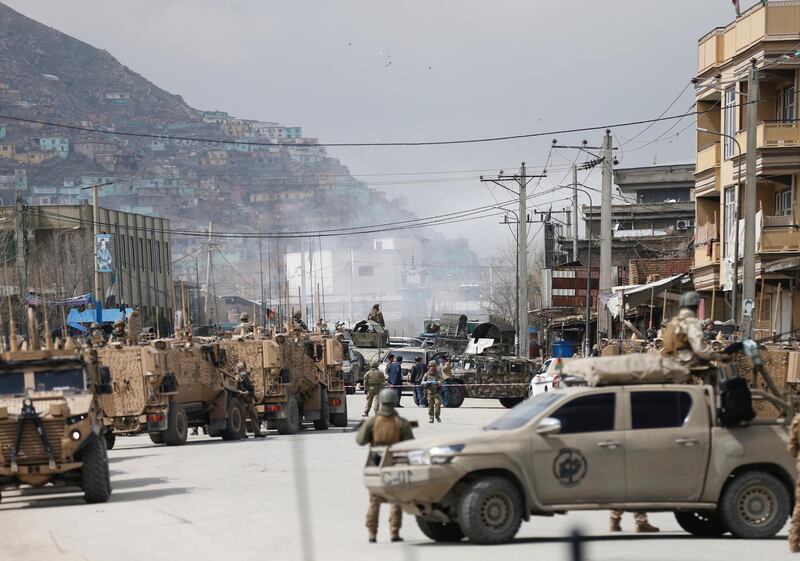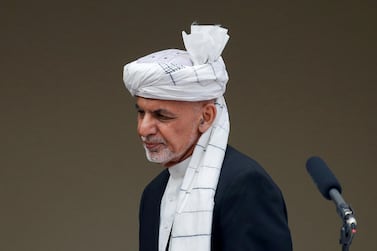Afghan authorities have raised the death toll from an attack by ISIS on a Sikh place of worship in the capital, Kabul, to 25 killed.
The Interior Ministry says a lone ISIS gunman rampaged through a Sikh Gurdwara in the heart of the Afghan capital on Wednesday, killing 25 worshippers and wounding eight.
It says that the gunman held many of the worshippers hostage for several hours as Afghan special forces, helped by international troops, tried to clear the building.
Those killed included a child whose body was brought to a Kabul hospital, the emergency services and the hospital said. At least 15 people were wounded.
The temple, located in the historical neighbourhood of Shor Bazaar in old Kabul, was not only hosting worshipers for morning prayers, but was also home to several Sikh families, raising concerns of high casualties.
The Site Intelligence Group, which tracks militant postings and groups, said IS claimed responsibility for the attack on the group's Aamaq media arm.
For hours, family and community members on the outside waited for news on the loved ones stuck inside. "Families are trying to reach members who went to morning prayers, but no one is answering the phones. There are also many families who live inside the Gurudwara complex and we haven't heard from them any of their male members," Pari, an Afghan Sikh from Kabul, told The National. While she was not at the prayers herself, she was following the developments closely to check on close community members. Ramnath, another Afghan Hindu, shared that other places of worship for Hindus and Sikhs in the city had been put on lockdown.
Earlier this month an ISIS affiliate attacked a gathering of minority Shiite Muslims in Kabul, the capital, killing 32 people.
A previous ISIS attack on the Afghan Sikh community in 2018 resulted in the death of 19 members of the community, including their only parliamentary candidate, Avtaar Singh Khalsa, and prominent civil society leaders like Rawail Singh.
Afghanistan's Sikh community numbers fewer than 300 families.
Sikhs have suffered widespread discrimination in the conservative Muslim country and have also been targeted by extremists. Under Taliban rule in the late 1990s, they were asked to identify themselves by wearing yellow armbands, but the rule was not enforced. In recent years, large numbers of Sikhs and Hindus have sought asylum in India, which has a Hindu majority and a large Sikh population.
In the late 1980s, there were about 500,000 Sikhs scattered across Afghanistan, many from families that had been there for generations, but most fled after years of civil war and the rise of the Taliban.
Sikhs are among religious minorities eligible for citizenship in India under a controversial law introduced by Prime Minister Narendra Modis Hindu nationalist Bharatiya Janata Party.
Human rights activists and countries including the United States, India and Pakistan condemned the attack.
"We are shocked and disheartened ... the authorities have a responsibility to protect minorities and their places of worship in Afghanistan," Amnesty International South Asia said on Twitter.
However, sources in the Afghan government claimed that the attack was the work of Haqqani Network, executed in collaboration with the Taliban’s Quetta Shura.
"According to our intelligence, there were a few threats of impending attacks from Haqqani Network on Indian interest in Afghanistan. In response, we secured those locations including the Indian embassy. As a result, they directed the attack to the Hindu and Sikh community [which has close ties to India]," a government source who did not wish to be named told The National.
The source also said that there was some evidence the attack was in retaliation to the recent violence against the Muslim minorities in India.
“The primary information does show us this could be revenge from what is going on in India. But we cannot accept it as the only reason, considering Indian interests have long been a target for the Haqqani Network. This is just an excuse for them to target Indians or our Hindu brothers,” he said.
India has seen a spate of violence, including riots in the capital city of Delhi, following protests against a new citizenship law brought in by the right-wing ruling party that discriminates against Muslims. The Indian Embassy condemned the attack, offering assistance to the affected families.
